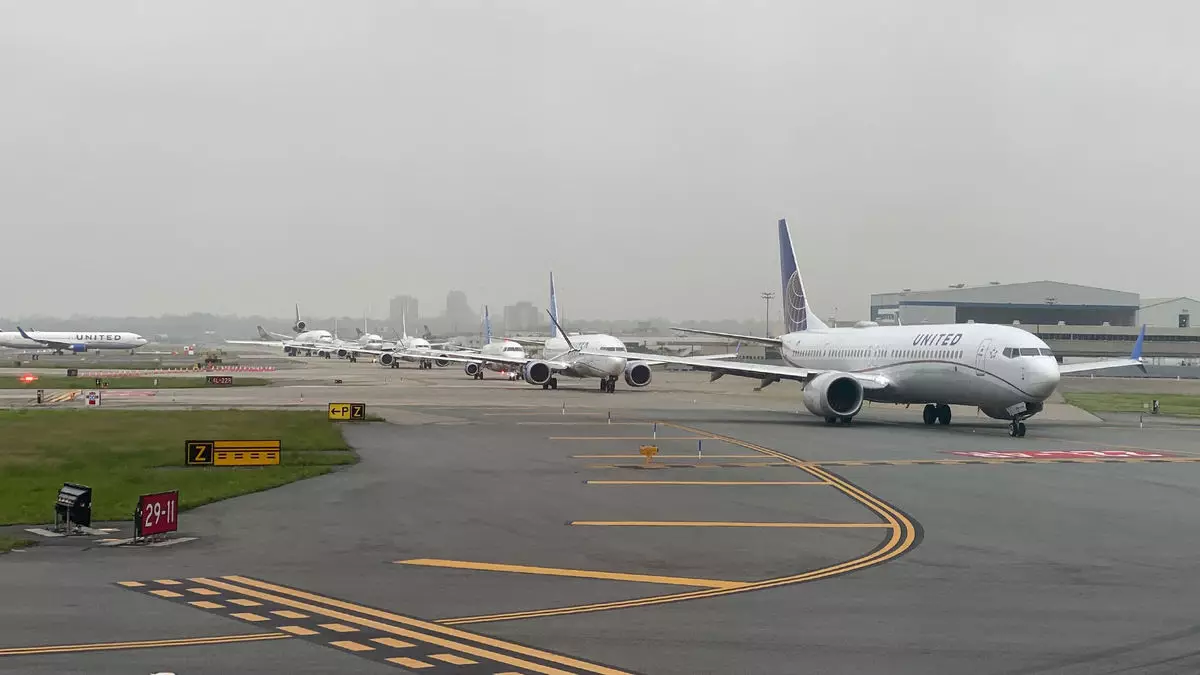In recent months, the airline industry has grappled with a significant upheaval that has left travelers and travel advisors alike feeling uncertain. Flight cancellations, delays, and operational cutbacks have turned what should be a seamless travel experience into a logistical nightmare. As travelers become increasingly aware of these challenges, the role of travel advisors has never been more crucial. They not only help clients navigate these turbulent waters but also provide invaluable insights and reassurance that can transform a potentially stressful journey into a manageable experience.
A case in point is Rick Ardis, the owner of Ardis Travel in New Jersey, who faced the dilemma of flying from Newark to Denver and then on to Salt Lake City for a travel conference. Instead of risking cancellation due to United Airlines’ recent flight cuts, he made the proactive decision to drive a significant distance to the Lehigh Valley Airport. This choice allowed him to avoid the chaos plaguing Newark, where the airline industry’s challenges have dominated conversations in local communities, from the office water cooler to children’s sporting events. Such anecdotes highlight a broader trend; travelers are starting to acknowledge the importance of adaptability in travel plans in the face of airline unpredictability.
The Power of Informed Decisions
This situation underscores a crucial aspect of modern travel: the need for informed decision-making. As travel advisors like Parri Mahan and Melissa Sanchez have witnessed, clients are eagerly seeking advice during this turbulent time. Mahan’s ability to reassure clients with personalized, up-to-date information exemplifies the fundamental value travel advisors bring to their customers. In her experience with clients traveling to Europe, she not only addressed their concerns but also provided insights into EU compensation regulations—an empowering piece of knowledge that eases anxiety around potential cancellations.
Furthermore, the disruption facing Newark Airport, primarily due to air traffic control challenges, has prompted travelers to reconsider their options. For some, the inconvenience of traveling to alternate airports like LaGuardia or JFK outweighs the risks of flying out of Newark. Melissa Sanchez aptly noted that many clients prefer the convenience of Newark, even amid ongoing disruptions, demonstrating that comfort and familiarity often trump risk in the minds of travelers.
Adaptive Strategies in Action
As the situation evolved, travel advisors recognized the need to not only adapt but to advocate for their clients actively. Rick Ardis exemplified this advocacy when he intervened on behalf of a client whose flight was canceled. By swiftly securing an upgrade and an earlier flight, he transformed a frustrating experience into one that exceeded expectations. This narrative serves as a reminder that the skills and dedication of travel advisors can make a significant difference in a client’s journey, particularly during challenging times.
However, the challenges don’t end there. Many travelers, due to their individual constraints or shifting plans, are opting to abandon Newark altogether. As Peter Vlitas from Internova Travel Group points out, there is a noticeable trend of travelers searching for alternative departure points, particularly those under strict time constraints. The proactive steps taken by travel advisors to explore these alternatives further emphasize the growing importance of personalized travel planning in today’s dynamic landscape.
The Role of Technology in Travel Management
The ongoing turmoil has also highlighted the critical role of air traffic control technology and its impact on flight operations. With recent incidents causing significant delays and cancellations, it has become increasingly clear that clients benefit greatly from travel advisors who understand the underlying systems that govern air travel. By remaining vigilant and informed, advisors can not only anticipate potential issues but also provide backup plans that can save valuable time and peace of mind.
This evolving landscape requires travel advisors to stay ahead of the curve, continuously monitoring airline operations and client preferences. The result is a more resilient travel strategy that empowers clients to make informed decisions, despite the uncertainties of modern air travel. By adopting a proactive approach, advisors can mitigate disruptions and enhance customer confidence, transforming what could be a dismal experience into a testament to the value of expert travel management.
Travel is undeniably changing, and those who can adapt swiftly to these changes stand to thrive. As the airline industry continues to recover from its recent trials, the partnership between clients and travel advisors will remain paramount in creating meaningful, hassle-free travel experiences.


Leave a Reply